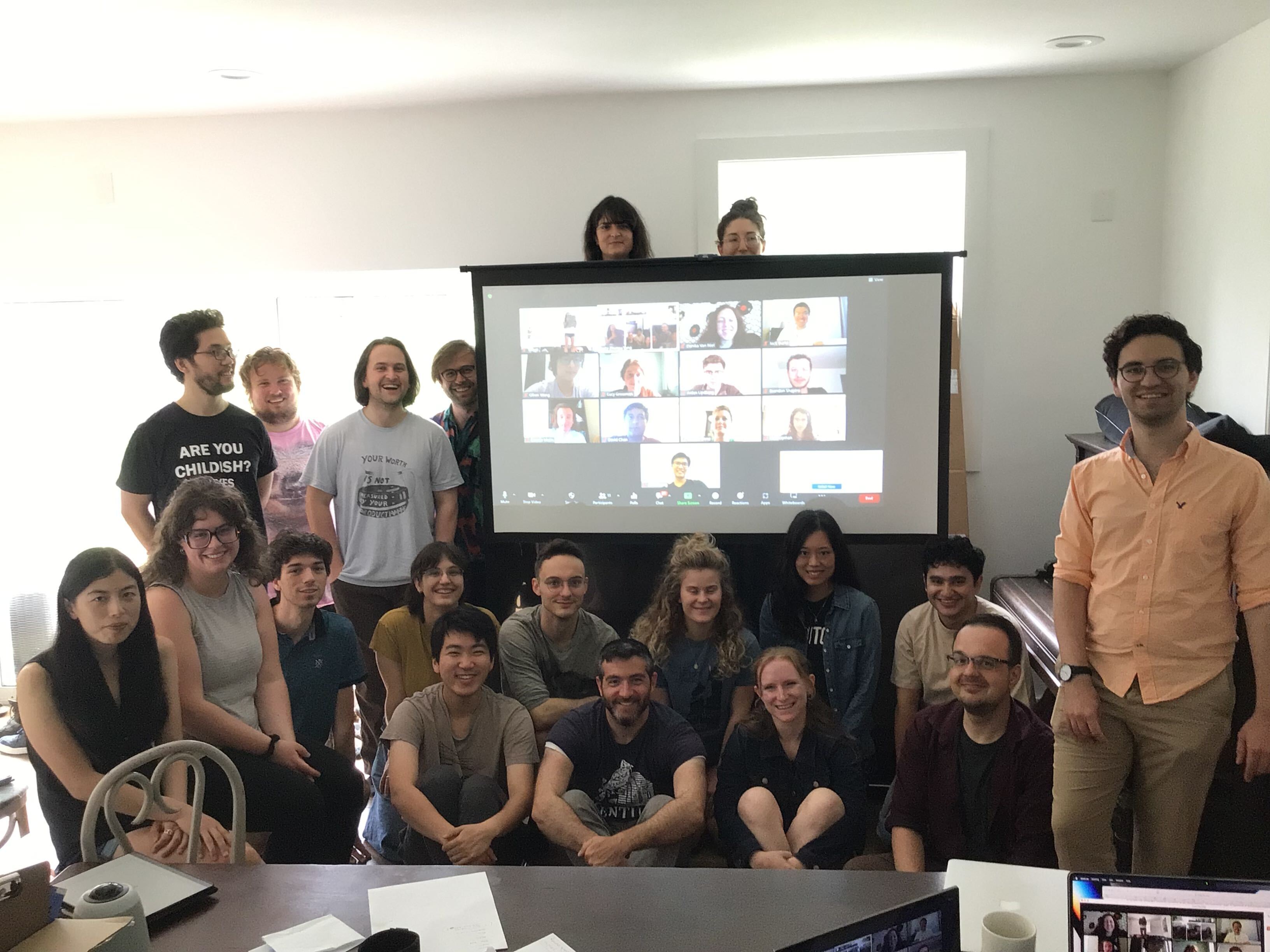Talbot 2022: Scissors congruence and algebraic K-theory
Mentored by Inna Zakharevich and Jonathan Campbell
June 12-18, 2022
New Lebanon, NY

Topic: Hilbert’s third problem asked to produce two polyhedra of equal volume which are not scissors congruent, i.e. which cannot be be decomposed into the same (finite) set of isomorphic sub-polygons. In 1901 Dehn showed that a second invariant, now called the Dehn invariant, was preserved under such decompositions, and that this invariant is zero for the cube but nonzero for the regular tetrahedron, thus providing the example Hilbert requested. In 1965 Sydler showed that no other invariants are necessary: if two polyhedra have the same volume and the same Dehn invariant, then they are scissors congruent. Analogs of this problem, in other geometries and in other dimensions, are still open.
By defining the sum of polytopes to be their disjoint union we can define a group structure on scissors congruence classes. Hilbert’s third problem can then be reinterpreted as the question of analyzing these scissors congruence groups. The first part of this course will focus on learning about computations and connections between scissors congruence and algebraic K-theory. The second part will discuss how to construct scissors congruence invariants using K-theory and various implications of these constructions. The third part dives deeper into the technical underpinnings of K-theory to illustrate how the algebraic approaches of classical K-theory can be expanded to include more combinatorial descriptions.
Please see the preliminary syllabus for more detailed information and references.
Suggested prerequisites:
Mentors: The 2022 Talbot workshop will be mentored by Prof. Inna Zakharevich of the Cornell University and Jonathan Campbell.
Format: The workshop discussions will have an expository character and most of the talks will be given by participants. The afternoon schedule will be kept clear for informal discussions and collaborations. The workshop will take place in a communal setting, with participants sharing living space and cooking and cleaning responsibilities.
The workshop will likely be held in a hybrid format, with some in-person participants and some virtual participants. In-person participants should expect to follow mitigation measures such as regular Covid-19 antigen testing, masking in indoor common spaces, and meals taken in a socially distanced/outdoor setting. For virtual participants: we will do our best to create a virtual environment which resembles the workshops of the past. Both in-person and virtual participants will give talks.
Timeline: The 2022 Talbot workshop will take place in June 12-18, 2022.
Funding: We cover all local expenses, including lodging and food. We also have limited funding available for participant travel costs.
Who should apply: Talbot is meant to encourage collaboration among young researchers, particularly graduate students. To this end, the workshop aims to gather participants with a diverse array of knowledge and interests, so applicants need not be an expert in the field. In particular, students at all levels of graduate education are encouraged to apply. Our decisions are based not on applicants' credentials but on our assessment of how much they would benefit from the workshop. As we are committed to promoting diversity in mathematics, we also especially encourage women and minorities to apply.
Inclusiveness statement: In accordance with the Statement of Inclusiveness, this workshop will be open to everybody, regardless of race, sex, religion, national origin, sexual orientation, gender identity, disability, age, pregnancy, immigration status, or any other aspect of identity. We are committed to ensuring that the Talbot Workshop is a supportive, inclusive, and safe environment for all participants, and that all participants are treated with dignity and respect.
Contact Information: Please email the organizers at talbotworkshop(at)gmail.com if you have any questions.